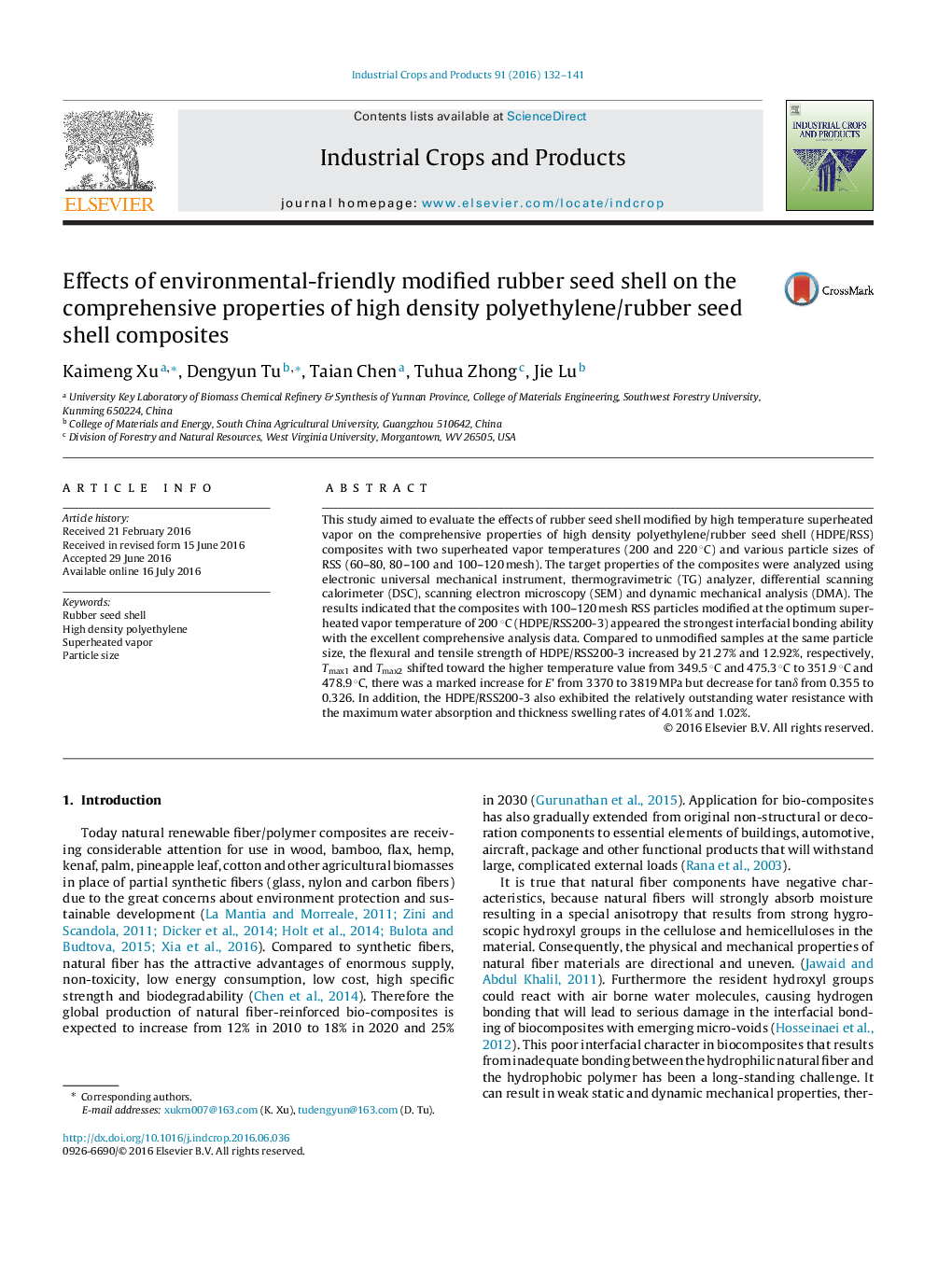| Article ID | Journal | Published Year | Pages | File Type |
|---|---|---|---|---|
| 4512002 | Industrial Crops and Products | 2016 | 10 Pages |
Rubber seed shell was firstly modified by superheated vapor to reinforce bio-composites.The effects of the RSS particle size and superheated vapor temperature were studied.The optimum parameters (200 °C and 100⿿120 mesh) can significantly enhance the properties of HDPE/RSS composites.
This study aimed to evaluate the effects of rubber seed shell modified by high temperature superheated vapor on the comprehensive properties of high density polyethylene/rubber seed shell (HDPE/RSS) composites with two superheated vapor temperatures (200 and 220 °C) and various particle sizes of RSS (60⿿80, 80⿿100 and 100⿿120 mesh). The target properties of the composites were analyzed using electronic universal mechanical instrument, thermogravimetric (TG) analyzer, differential scanning calorimeter (DSC), scanning electron microscopy (SEM) and dynamic mechanical analysis (DMA). The results indicated that the composites with 100⿿120 mesh RSS particles modified at the optimum superheated vapor temperature of 200 °C (HDPE/RSS200-3) appeared the strongest interfacial bonding ability with the excellent comprehensive analysis data. Compared to unmodified samples at the same particle size, the flexural and tensile strength of HDPE/RSS200-3 increased by 21.27% and 12.92%, respectively, Tmax1 and Tmax2 shifted toward the higher temperature value from 349.5 °C and 475.3 °C to 351.9 °C and 478.9 °C, there was a marked increase for E⿿ from 3370 to 3819 MPa but decrease for tanδ from 0.355 to 0.326. In addition, the HDPE/RSS200-3 also exhibited the relatively outstanding water resistance with the maximum water absorption and thickness swelling rates of 4.01% and 1.02%.
Graphical abstractFigure optionsDownload full-size imageDownload as PowerPoint slide
